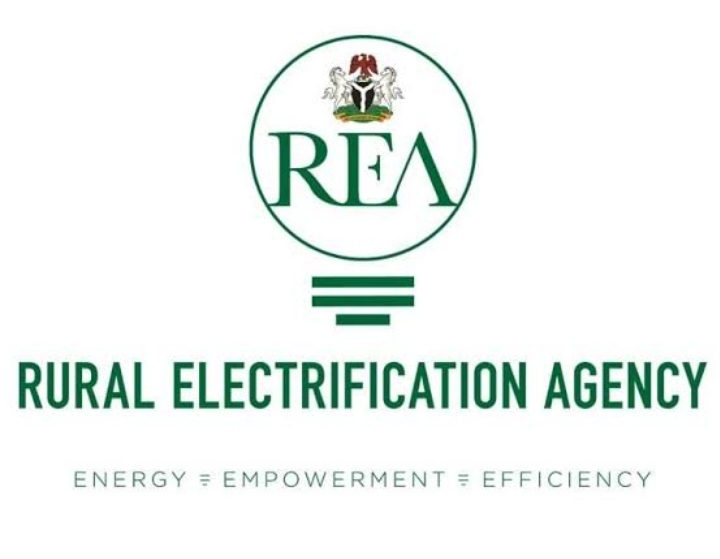It appears another Naira scarcity is in the offing as deposit money banks (DMBs) recently resumed cash rationing in branches across the federation. This reminds one about what happened early last year; PAUL OKAH writes.
Nigerians will not forget in a hurry their experiences in the first quarter of 2023 as a result of the hardships they faced when the former Governor of the Central Bank of Nigeria (CBN), Godwin Emefiele, introduced new bank notes and mopped up old notes, but with only a fraction of the new notes in circulation for transactions.
Since then, Nigerians have been experiencing cash scarcity at intervals as deposit money banks (DMBs) often resort to rationing cash to customers in different parts of the country, especially as experienced earlier this year.
For what it is worth, Nigerians are presently facing another round of cash scarcity as DMBs have, once again, resorted to rationing cash to customers in different parts of the country, perhaps, on a large scale this time around.
Checks by Blueprint Weekend revealed that automated teller machines (ATMs) are no longer adequately funded to dispense cash to customers in several banks across the Federal Capital Territory (FCT) and other parts of the country.
Also, customers transacting over the counter hardly get up to N20,000 in cash as requests of higher amounts are often met halfway by bank tellers explaining they don’t have much cash and have to give half of the requested amount.
Furthermore, many points of sale (PoS) operators have jerked up their charges in the face of cash rationing by banks, with many agents explaining they now have to pay higher to obtain cash from filling station owners and other big business owners.
Cashless ATMs, cash rationing by tellers
Investigation by this reporter revealed that many banks no longer load their ATMs with cash or load them once a day and deliberately configure the ATMs to dispense only N2, 000 or N5, 000 to frustrated customers.
When this reporter visited the ATMs installed at the Federal Secretariat on Wednesday, none of them was dispensing cash, while frustrated workers queued to try their luck, but always getting messages such as “unable to dispense cash” and “temporarily out of service.”
Meanwhile, inside Zenith Bank at the Federal Secretariat, this reporter observed that bank customers were paid a maximum of N10, 000, regardless of the amount they applied for, with security men advising customers to try other branches if they needed more cash.
Similarly, when Blueprint Weekend visited ATMs at GTB, Access, First Bank, Unity, UBA and FCMB in Wuse 2, none was dispensing cash, while many customers had no option than to patronise PoS operators since the banking halls were overflowing with customers waiting for any amount they would be given.
Lamentations
Speaking with Blueprint Weekend, a businessman in Abakaliki, Godwin Chukwu, said the cash rationing started more than two months in the Ebonyi state capital and that residents are forced to patronise PoS operators, who are never out of cash.
He said, “Here in Abakaliki, you cannot find money in any ATM. The machines are simply not funded. No matter the amount of cash you need, the highest you can get in some banks is N20, 000 when you fill their tellers. I made a post on Facebook about it two months ago and the situation is still persisting. As of today, in Abakaliki, Ebonyi state, we buy cash and it’s not funny.
“The ironic part is that PoS operators are never out of cash in the same city. Since banks cannot give you the amount you need, PoS operators can give you the needed money, but you will pay through your nose. For instance, they charge N3, 000 if you want to withdraw N100, 000. That is N300 for every N10, 000 you want to withdraw. Is it not a matter of concern? Imagine, we are now buying our own money with our money. This is despicable, to say the least.”
Also, a civil servant in Abuja, Favour Ademola, told our reporter that could not withdraw up to N100, 000 from her bank for a transaction that needed cash and had to patronise PoS operators, saying the situation will get worse in the coming weeks.
She said, “I was charged N3, 000 to withdraw N100, 000 from a PoS by an agent when I couldn’t get the needed amount from my bank for a transaction that needed cash. I tried to inquire why the charge was inflated and I was surprised to hear that they pay a lot to get the little they use to service the public. It’s no longer funny! Unfortunately, we’re yet to step into the month of December.
“I know I have withdrawn up to N500, 000 cash sometime this year, so this present cash rationing is just starting. I wouldn’t have known about that if I had not gone to the bank on Monday. And with the way things are going, we will be paying N500 to get N10, 000 from PoS agents very soon as my experience over the years shows that banks often ration cash during the December period since the naira scarcity issue started in 2022.”
Bankers’ explanations
Speaking with this reporter, a staff of GTB in Abuja, Mrs. Rita Adewale, said cash rationing is a norm at the end of every year as CBN often reduces the quantity of cash in circulation, saying there was no cause of concern about banks folding up.
“End-of-year periods are typically like this. It has almost become a norm. From my 9 years of experience in the industry, the CBN significantly reduces cash supply during this time. For example, if banks were previously receiving ₦200 million weekly, it could drop to as low as ₦10 million or even ₦5 million in some cases. This amount is then distributed across the bank’s various branches. As a result, banks have no choice but to implement limits on cash payments to ensure the available funds are shared as evenly as possible.
“That said, most of our popular banks are currently migrating their core banking applications to more advanced platforms. This migration is aimed at safeguarding shareholders’ and investors’ funds against cybersecurity threats. By consolidating their operations under a single, robust banking software, they are ensuring a more secure and efficient banking experience.
“In this era of digital banking, where most transactions occur online, the priority is to enhance security measures to protect customers’ funds from potential breaches by malicious actors. Contrary to public speculation, no bank is on the verge of closing. Migration of banking systems is a complex and time-consuming process, but rest assured, it is being done to ensure a safer and more reliable banking environment for everyone,” she said.
Similarly, a banker in Calabar, Cross River state, who pleaded anonymity, confided in this reporter that the cause of cash rationing is as a result of people hoarding cash, saying many people no longer come to the bank to deposit money.
He said, “It is advisable that we face realities as enlightened people and not join in unfounded speculations. The truth of the matter is that banks are not receiving enough cash from the CBN. Also, individuals are no longer bringing cash to deposit in their banks. How many times have you gone to the bank to make deposits over the counter? The money is revolving among us and that is the truth of the whole matter.
“Also, businessmen now prefer to give cash to PoS agents and make extra cash, as against coming to the bank with bags of cash. There is nothing like bribing tellers to get more cash than the rationed amount. It is when you see the cash that you will be talking about bribery. We give what we have as cash to customers and we have to ration the cash so that it can get to as many customers as possible. Instead of being told there is no cash, it is better to be given less than you applied for.
“Moreover, an aspect many of us tend to overlook is that many people now embrace digital transactions, instead of carrying a high volume of cash around. Internet and mobile banking are there for customers to use. With just a click, you can transfer a designated amount of money to someone and conclude a transaction. Fintechs like Opay, Palmpay, Moniepoint and others are also there, so there is really no cause for alarm with regards to cash availability.”

 17 hours ago
5
17 hours ago
5












